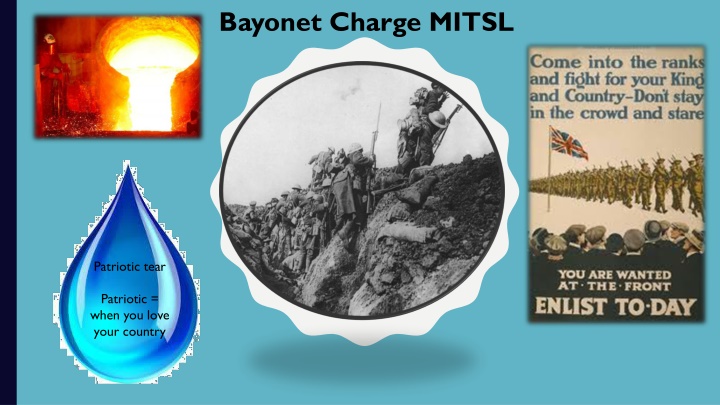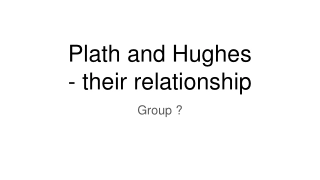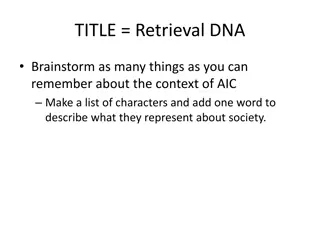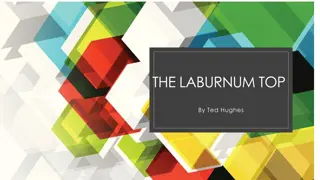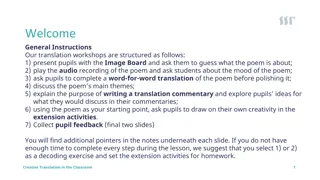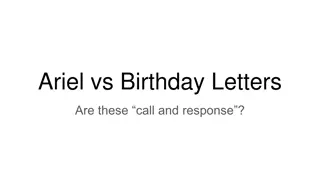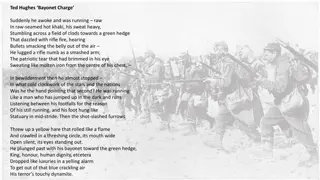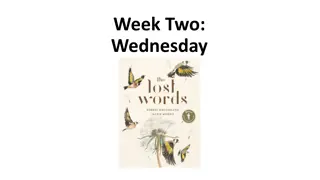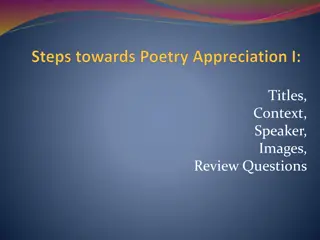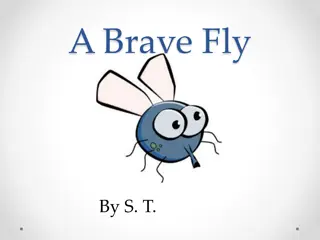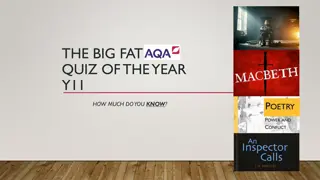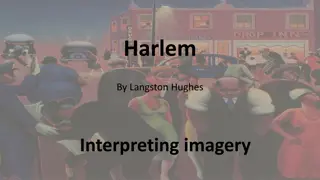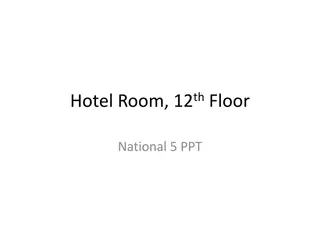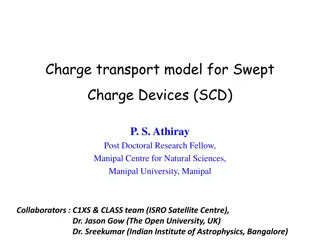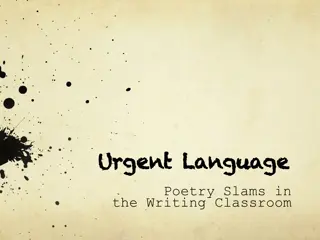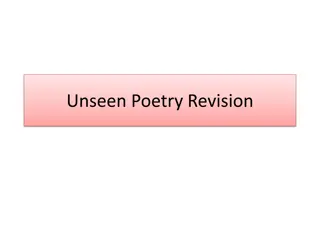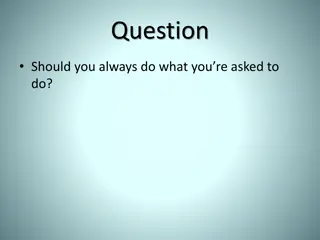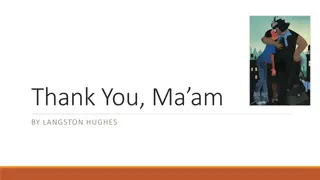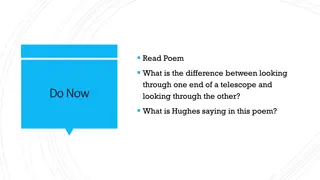Analysis of "Bayonet Charge" Poem by Ted Hughes
The analysis discusses how soldiers are manipulated into war, dehumanized, and forced to confront the harsh reality of combat in Ted Hughes' poem "Bayonet Charge." Through vivid imagery and language, the poem portrays the horrors of war and the impact on individuals caught up in its violence, shedding light on propaganda, patriotism, and the dehumanization of soldiers.
Uploaded on Sep 29, 2024 | 6 Views
Download Presentation

Please find below an Image/Link to download the presentation.
The content on the website is provided AS IS for your information and personal use only. It may not be sold, licensed, or shared on other websites without obtaining consent from the author.If you encounter any issues during the download, it is possible that the publisher has removed the file from their server.
You are allowed to download the files provided on this website for personal or commercial use, subject to the condition that they are used lawfully. All files are the property of their respective owners.
The content on the website is provided AS IS for your information and personal use only. It may not be sold, licensed, or shared on other websites without obtaining consent from the author.
E N D
Presentation Transcript
Bayonet Charge MITSL Patriotic tear Patriotic = when you love your country
CONTEXT (AO3) Served in the RAF for two years. The poem is about World War One and the experience of going over the top of the trench. Hughes wrote a lot about nature. His father was at war too.
MEANING The message of the poem is that soldiers are forced to fight and lied to by the government that war would be fun and over early. The reader could feel strongly against war because it can effect someone s life badly. The poem could also shine light on the lies of propaganda because of king, honour, human dignity he doesn t want to fight anymore for that. patriotic shows he no longer loves his country and Hughes is echoing how a lot of soldiers were guilt tripped to fight to save their country. terrors touchy dynamite shows he has become a weapon. There is a message that soldier become dehumanised.
IMAGERY AND LANGUAGE bullets smacking the belly out of the air personification and the verb smacking sounds aggressive and abusive like war can hurt nature. sweating like molten iron is a simile to show he is dehumanised because molten iron can make weapons also it is an uncomfortable image because he is too hot from running. threw up a yellow hare that rolled like a flame a bomb or the gunnery has forced a hare out of its home (could be a metaphor for how the soldiers too were forced out of their homes by the government). Semantic field of heat because we have flame again like the molten iron . Also something innocent has become involved just like the soldiers.
IMAGERY AND LANGUAGE running like a man who has jumped in the dark he is scared and he has to react straight away. in the dark means how the soldiers were in the dark (hidden) from the REALITY OF WAR. dropped like luxuries in a yelling alarm all of the meaning of war has turned to NOTHING. yelling alarm he is frightened and war can carry on until the government stop it. suddenly he awoke and was running in war you can t rest you have to get up and fight. There are words contributing to war rifle fire bullets smacking shot slashed furrows dynamite like a flame Hughes is deliberately showing the HARSH REALITY OF WAR. all together
Heat imagery surrounding both of them molten iron rolled like a flame Both innocent and forced to die because of war and for someone else s sake. Both been forced out of their homes thanks to war.
in what cold clockwork of the stars and the nations was he the hand pointing that second?
He is trying to find out the purpose of why he is in war because he doesn t understand what his role in war is. A clock is never ending it always carries on and doesn t stop and it is similar to war because the soldier feels like the war won t stop.
TONE Angry tone his terror s touchy dynamite and in a yelling alarm There is a tone from Hughes that if you attack nature it can be weaker than humans. Hughes has a negative tone that we abuse nature. There is a violent tone bullets smacking the belly out of the air to make the reader feel sympathy for what the soldiers go through everyday. The overall tone that this poem has is that war is not as great as propaganda AND the final line makes you realise how war can cause PTSD.
STRUCTURE There is no cyclical structure this could show how his opinion of war changes by the end and other peoples opinion too because propaganda makes you think one way but then when you get there it is completely different. None of the stanzas end in a full stop. The soldier s worries never end and you may feel the impact of waiting in the trench. There s only two full stops to mimic the chaos of charging because the soldier cannot stop. The lack of stopping in the poem shows the lack of opportunity to stop in war.
STRUCTURE There is no rhyme scheme and no structured rhyming because war is chaotic. Also maybe it is too serious to have rhyming. In Stanza Two there is a lack of commas because he has a lack of breath. Stanza 1 = He wakes up and is running and sweating. He hears rifle fire. Stanza 2 = He runs and the running is repeated to show it is never ending. He stops and questions the point of war. Stanza 3 = A hare flies out and is injured. He gives up on propaganda and by the end becomes dynamite.
STRUCTURE There is enjambment to show how lines carry onto the next so he is out of breath and we are put in his shoes. Stanzas have 8,7,8 lines this might show how he is in limbo about his opinion of war. At the start of every line capital letter he is attempting to regain control.
in media res
